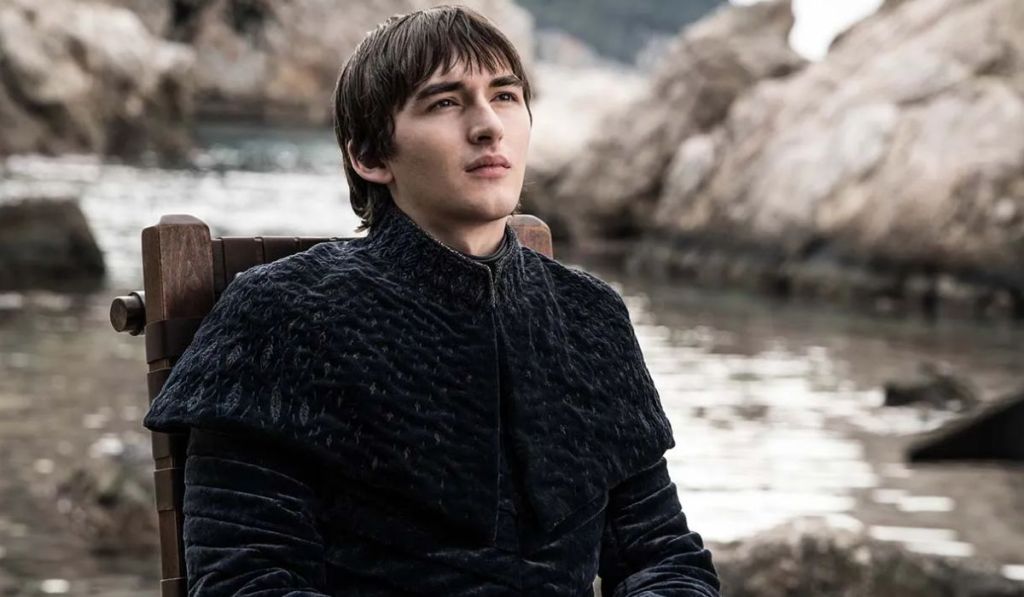Game of Thrones has always been a phenomenon (even with the problems of its last season), and it’s a show that has always grabbed audiences with its mysteries, twists, and complex characters. Among them all, Bran Stark was perhaps one of the most enigmatic. Initially known as a boy who suffered a brutal fall and lost the ability to walk, he soon underwent a transformation that led him to become the famous Three-Eyed Raven, able to see the past, the present, and the future. And although he claims not to want power or the throne, that’s exactly what happens to him. However, a very intriguing theory about this has gained traction among fans and is still discussed today: Did Bran truly not want to be king?
Videos by ComicBook.com
Almost no one liked the show’s ending in this regard, since it basically seemed that the character did nothing. Some even considered him one of the most hated characters in Game of Thrones, especially because, compared to many others who were protagonists or stole the show, he always stayed in the background. However, according to this famous theory, the boy did everything in a calculated way to reach the throne, manipulating events in the shadows to ensure his ascension. Being the Three-Eyed Raven, he could undoubtedly and easily achieve this.

Bran begins his journey as an ordinary boy who dreams of becoming a knight and exploring the world, but everything changes after Jaime Lannister pushes him from a tower, leaving him paraplegic. However, his destiny takes a completely different turn when he meets the Three-Eyed Raven, who teaches him how to use his powers of time vision. From then on, Bran acquires abilities that put him in a unique position: he is not limited by time like everyone else, being able to observe and, in some cases, interact with events that have already happened or are yet to come. This gives him an almost omniscient knowledge of everything around him, something no other character possesses.
What makes the theory so fascinating is that, despite Bran repeatedly stating that he has no interest in the throne, he demonstrates a knowledge and preparation that suggests otherwise. In the series finale, when the leaders of Westeros gather to decide who will rule the Seven Kingdoms after Daenerys’ fall, it’s Tyrion Lannister who proposes Bran as king. So Bran responds with an enigmatic phrase: “Why do you think I came all this way?” Why would he say that? This question remained in the minds of many fans for a long time. Did he already know he would be chosen? Was nothing left to chance?
[RELATED: George R. R. Martin’s Original Plan for This Game of Thrones Character Would Totally Change the Show]
Throughout the seasons, Bran performs some actions that, taken in isolation, seem innocent or even passive, but which, in light of this theory, take on a new dimension. A clear example is when he gives his sister Arya the Valyrian steel dagger (the weapon she would use to kill the Night King), simply saying that she would make better use of the weapon than he would. This indicates that Bran had prior knowledge of the importance of that event, acting strategically to ensure the survival of Westeros. If he had this broad view, it’s quite plausible to think that other equally subtle interventions happened, with the aim of manipulating the course of events.

There’s also the idea that Bran, while traveling through time during his visions, ended up triggering circumstances that led to the creation of the Night King. That just adds to the whole time-loop paradox – where he’s somehow both the problem and the solution to the biggest threat in Westeros. All this complexity only reinforces his role as a silent agent who, even without exposing himself directly, was always influencing the course of history so that it would unfold in a way that would guarantee the future he desired. This duality is what makes Bran an even more mysterious and powerful figure.
His eventual rise to the throne, therefore, can very well be interpreted as the end result of a plan that was carefully crafted and orchestrated over time. Bran is not just a lucky boy; he is a strategist who used his gifts to ensure an end that many did not expect. As the Three-Eyed Raven, he had all the knowledge and wisdom to rule impartially, without the personal ambitions that corrupted so many other characters. This vision of leadership is exactly what the nobles of Westeros seem to be looking for when choosing a king.
Also, it’s interesting to note that Bran is a character who, throughout the series, is seen as distant, calm, and almost uninterested in power struggles. For viewers who saw this as a negative trait, the theory suggests that it was nothing more than part of his strategy – a way to avoid raising suspicion and keep his true intentions hidden. By denying that he wants the throne, he reduces resistance to his ascension and maintains control of events in a discreet manner, which is a typical characteristic of a calculating player. And that’s what it’s all about, isn’t it? It’s literally what the name of the story says – Game of Thrones.

The plot of the show never had traditional heroes and villains; everyone had their qualities and flaws. Bran was just one of them, only perhaps he would have chosen to act very differently from everyone else. With that, he ceases to be a victim or a supporting character to become a protagonist with agency and the ability to manipulate. Although many may not like it, with this theory, it’s inevitable to say that his ascension to the throne was not undeserved.
It’s impossible not to be impressed by the idea that he was not just a passive observer of events, but someone very active who used his extraordinary knowledge to shape the future in the way he considered best. In the show, power is often in the hands of those who can see beyond the immediate. Manipulating the pieces silently to ensure ultimate victory may not be the option some would choose, but in Game of Thrones, anything goes to get to the throne.
Game of Thrones is available to stream on Max.








